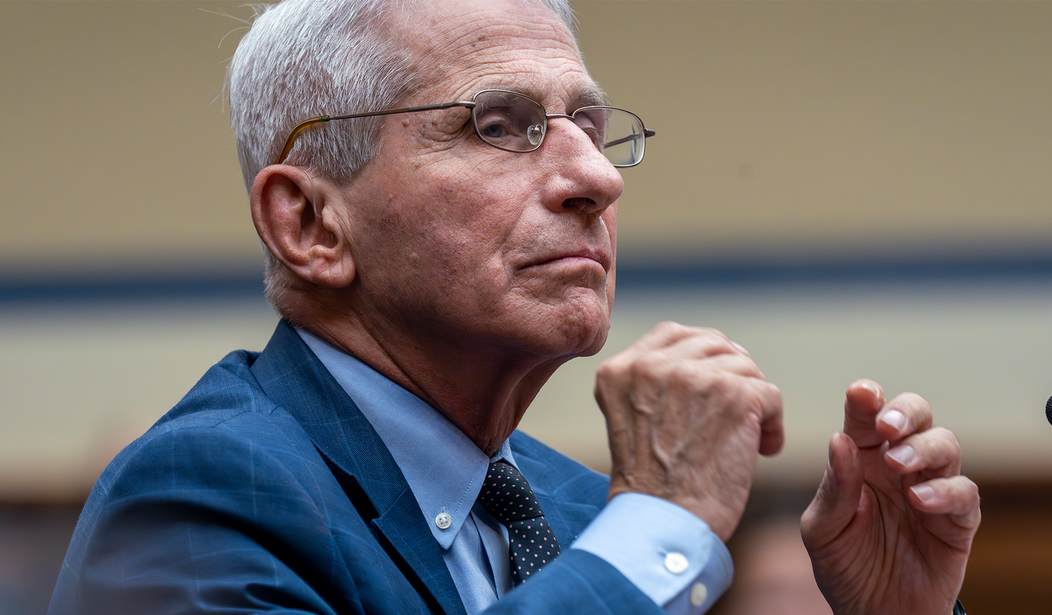In one of life's little ironies, the former director of the National Institution of Allergy and Infectious Disease (NIAID) Anthony Fauci was recently hospitalized for six days. No, not by the COVID-19 bug, but by a different virus - the West Nile virus.
Dr. Anthony Fauci, the public face of the U.S. coronavirus pandemic response, was hospitalized earlier this month with the West Nile virus (WNV), according to a report citing his spokesperson.
Fauci, 83, was hospitalized for six days before he returned home where he is now recovering, The Washington Post reports.
The nation’s former top infectious-disease official is expected to make a full recovery from the virus, which is most commonly spread through the bite of an infected mosquito, according to the Centers for Disease Control and Prevention (CDC).
Guess a mask wouldn't have helped here, eh Tony?
That said, the West Nile virus is a nasty little bug. As noted above, it's spread by mosquitos, not direct contact, meaning that it can spread faster and farther than, say, COVID-19. Most coronaviruses are pretty fragile outside a host. UV - in other words, sunlight - is like a blowtorch to these viruses, and they last only minutes or even seconds in the open air. But pathogens spread by a vector, like West Nile, malaria, and Zika (mosquitoes), rabies (mammals, particularly raccoons, bats, and skunks,) bubonic plague (fleas), and hantavirus (mice) survive much longer, as they are carried and spread by a host.
And West Nile can be serious - especially in someone Dr. Fauci's age (83).
Serious symptoms in a few people. About 1 in 150 people who are infected develop a severe illness affecting the central nervous system such as encephalitis (inflammation of the brain) or meningitis (inflammation of the membranes that surround the brain and spinal cord).
- Symptoms of severe illness include high fever, headache, neck stiffness, stupor, disorientation, coma, tremors, convulsions, muscle weakness, vision loss, numbness and paralysis.
- Severe illness can occur in people of any age. However, people over 60 years of age are at greater risk for severe illness if they are infected (1 in 50 people). People with certain medical conditions, such as cancer, diabetes, hypertension, kidney disease, and people who have received organ transplants, are also at greater risk.
See Related: Tim Walz: COVID Lockdown Overlord
Fauci Finds an Acorn: Speculates on Trump's Assassination Attempt Injury
So, if one is in a high-risk category, as Dr. Fauci is due to his age if nothing else, maybe some mosquito netting or repellant would be in order. (As long as it's an option - enough with the mandates already.) In this case, Dr. Fauci's beloved masks wouldn't have made a bit of difference. But then, it's highly doubtful they made a difference in 2020, either.
Look, despite the mess this guy put the nation in during the whole COVID-19 event, I don't wish for Dr. Fauci to die of a virus. I don't wish that on anyone - well, maybe on Hamas and Hezbollah terrorists - those people I'm all in favor of assuming room temperature by any means. But one has to admit, there's a certain irony involved in all this. Dr. Anthony Fauci, the architect of the 2020 COVID-19 debacle, was put in the hospital by a virus spread by, of all things, mosquitoes.
Maybe he'll start agitating for mandatory mosquito netting.













Join the conversation as a VIP Member